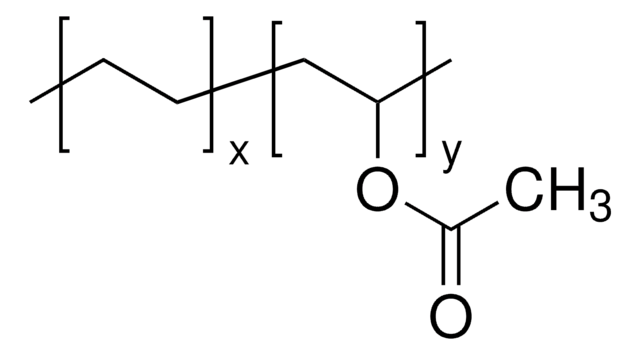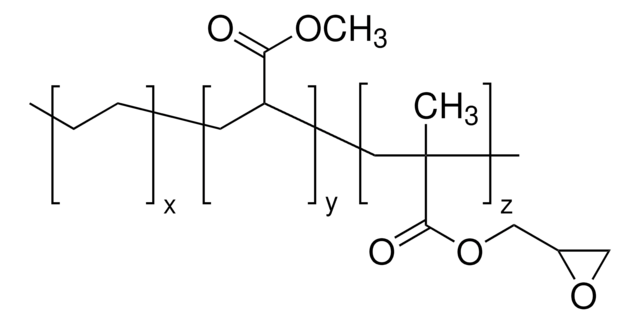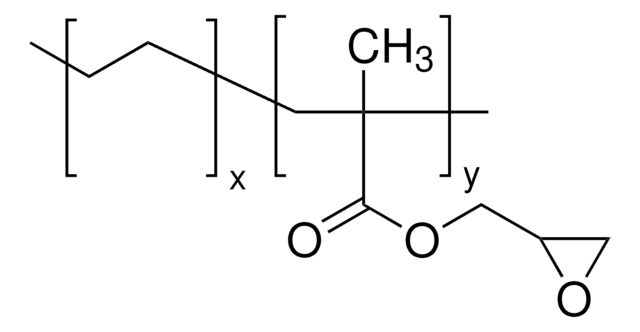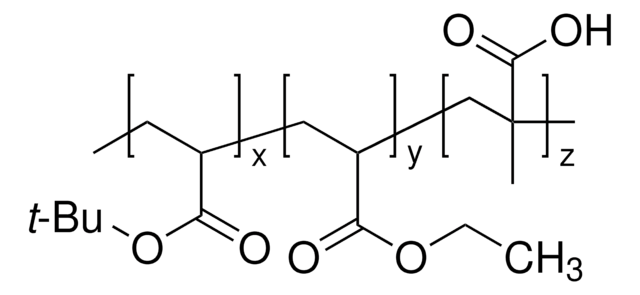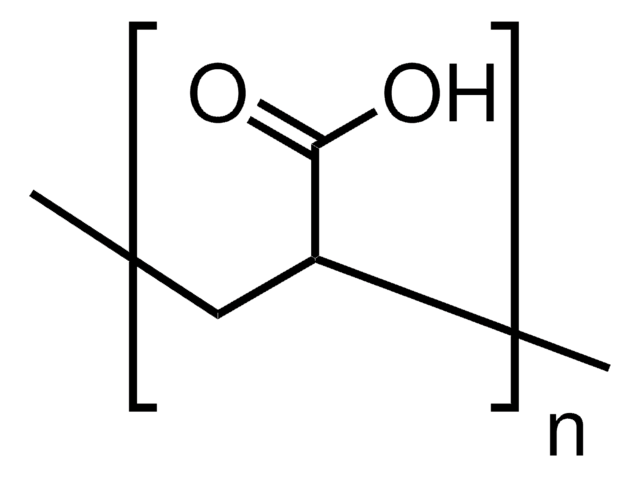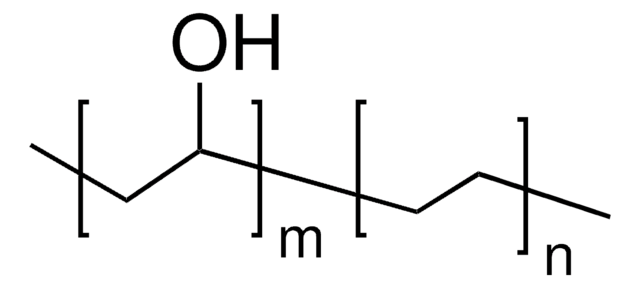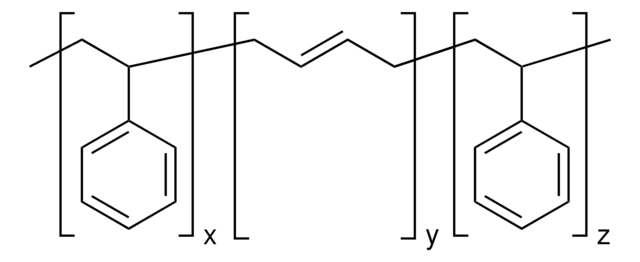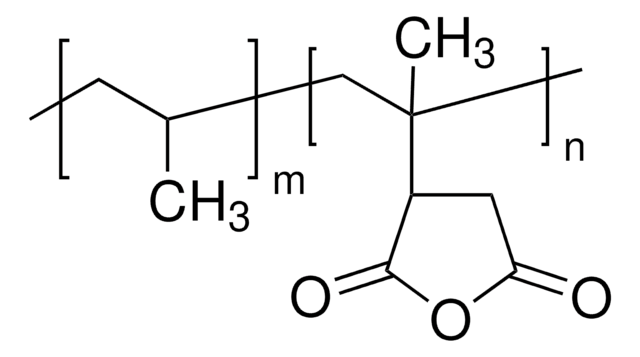426717
Poly(ethylene-co-acrylic acid)
acrylic acid 5 wt. %, beads
About This Item
Recommended Products
description
drop point 105 °C Mettler
Quality Level
form
beads
composition
acrylic acid, 5 wt. %
hardness
≤2.5 dmm (ASTM D 5, 25 °C)
viscosity
575 cP(145 °C, Brookfield)(lit.)
acid number
37‑44 mg KOH/g
transition temp
Tm 99-101 °C
density
0.93 g/mL at 25 °C
SMILES string
C=C.OC(=O)C=C
InChI
1S/C3H4O2.C2H4/c1-2-3(4)5;1-2/h2H,1H2,(H,4,5);1-2H2
InChI key
QHZOMAXECYYXGP-UHFFFAOYSA-N
Looking for similar products? Visit Product Comparison Guide
Related Categories
Application
Features and Benefits
Signal Word
Danger
Hazard Statements
Precautionary Statements
Hazard Classifications
Aquatic Chronic 3 - Eye Dam. 1 - Skin Corr. 1A - STOT SE 3
Target Organs
Respiratory system
Storage Class Code
8A - Combustible corrosive hazardous materials
WGK
WGK 3
Flash Point(F)
Not applicable
Flash Point(C)
Not applicable
Choose from one of the most recent versions:
Already Own This Product?
Find documentation for the products that you have recently purchased in the Document Library.
Our team of scientists has experience in all areas of research including Life Science, Material Science, Chemical Synthesis, Chromatography, Analytical and many others.
Contact Technical Service